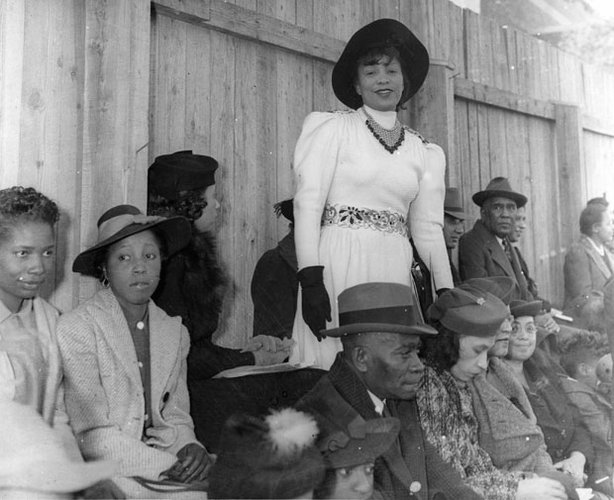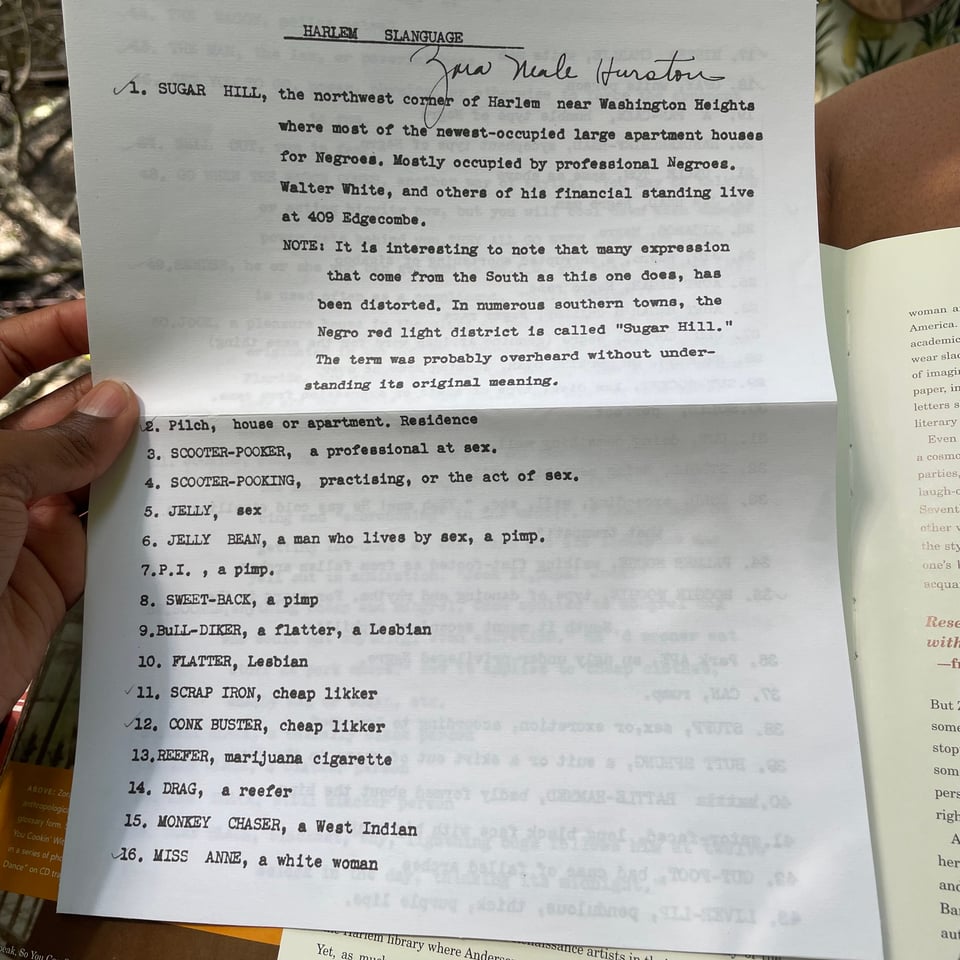notes on zora neale hurston*
each issue of new terms & conditions is an entry toward building abc glossary — a glossary for an anti-colonial black feminist critical media ecology. contribute your own new term & condition at abcglossary.xyz to be part of this project.
i will be pausing New Terms & Conditions for the month of august to give myself more breathe in my practice to read, research, and dream inside of the anti-colonial black feminist critical media ecology (abc) framework — which will soon include the glossary at abcglossary.xyz, a syllabus, and public workshops. i’m also excited to pour into other projects outside of the abc framework, like the subject of this newsletter. i want to commit to seasons of rest inside of my practice so that my practice does not become a burden to me, and to sustain this rehearsal toward freedom.
i’ll see ya’ll back here in september! until then, you can find me on instagram, are.na, and github computing, archiving, and worldbuilding.
anthropologist
folklorist
performance artist
writer
ethnographer
novelist
researcher
documentary filmmaker
linguist
playwright
teacher
domestic worker
southern Black girl

zora neale hurston was many things. her practice was site-specific as she recorded the stories of Black folks across the south, harlem, and the caribbean. she was an archival steward of Black life, in the ways that she took up blackness as a site of significant cultural production. i also think about how her methods spilled across disciplines — literature, linguistics, folklore, performance, and filmmaking, and through her fugitivity she celebrated Black language and labor specifically as a dataset inside of a rich network of protocols routing Black (southern) life.
recently i have been embracing my identity as a country black girl with people from louisiana, alabama, and arkansas who migrated to detroit and chicago. when i first left home for college, the goal was to assimilate. I exchanged “pop” for “soda,” “sneakers” for “tennis shoes,” and became conscious of “finna” (a shortened version of “i’m fixing to go”). language has always been a map to and for my people. i’ve lived in new york for about 5 years now, and accept that my twang and southern roots ain’t going nowhere with every “chile” i utter, but even more so I no longer wish it away.

zora understood that it was language that we brought with us inside of our aspirations and our songs, and it was language that we invented in our laughter, in the fields, and for our survival. writing as she traveled, she wrung together black tongues. zora was a node for a network of blackness before we could see our existence on black twitter.
with her practice predating the web, but her death in 1960 straddling the creation of the internet, i wonder, “what would zora do with, for, on the internet? how would she have spilled across cyberspace?” and for myself, "how can her archival methods be embodied by our current technologies, and in what ways does zora's practice teach us how to refuse contemporary forms of technological capture?”
i wish zora was taught to me as an anthropology undergrad. what it would have meant to me to see myself celebrated in her stories, and her methods regarded as worthy of study in contemporary cultural and linguistic anthropology. however, i am grateful to reconnect with her now, as i navigate my newfound fugitivity as a cyber anthropologist, artist, educator, and coder. i look forward to exploring the questions above through all of these disciplines.
Add a comment: